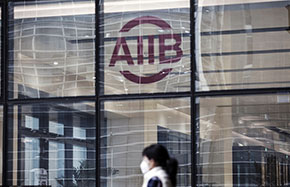Stiffer penalties sought for IP theft
Judicial professionals are calling for lawmakers to protect intellectual property by increasing penalties for infringements, as online piracy and fake goods are hard to clean up.
Although China has made great efforts in recent years to stamp out IP infringements, especially regarding online piracy and counterfeiting, "IP rights remain hard to protect because of the low fines for infringements," said Zhao Zhanling, a legal researcher at China University of Political Science and Law who specializes in IP cases.
Currently, under a Supreme People's Court judicial interpretation on handling criminal IP cases, people who make or sell unlicensed goods worth 50,000 yuan ($7,700) or more are subject to criminal punishment. For lesser amounts, they are fined.
"In other words, the threshold for committing an IP crime is low," said Zheng Junfang, chief administrative officer of Alibaba, the parent company of e-commerce giant Taobao.
According to a work report from the top court, Chinese courts handled more than 15,000 IP civil, commercial and administrative disputes last year, almost 17 percent more than in 2015.
The report found that a major reason IP protection was not optimal in China was because the fines and other penalties were not stiff enough.
"The compensation IP violators must pay under the law is less than the money they have illegally earned," it said.
Zhao pointed out that the money legally due IP owners for the right to re-create their work online is more than the fines for doing it illegally.
"Administrative penalties, such as the fines for repeated violations of IP rights, should be further increased, and website operators must more carefully review online work," he said.
Zheng said in February that Alibaba has made great efforts to clear fake products from e-commerce, but the low penalties for infringements have been a stumbling block.
In 2016, Alibaba found 4,495 cases in which the volume of fake goods exceeded the threshold for criminal prosecution, yet only 33 people were prosecuted and received criminal punishment, she said.
"Many counterfeit good makers got suspended sentences or just fines instead of strict penalties," she said.
As lawmakers discuss a draft law, "it's necessary to take other measures first, such as increasing the penalties for counterfeit good sellers or shutting down their online shops," said Wang Zhanping, a lawyer from Tongfang Law Firm in Shenyang, Liaoning province.
Ruan Fangmin, a law professor at Zhejiang University, agreed and suggested the legislature lower the threshold for e-commerce cases.
But Wang Xin, a law professor at Peking University, said the current IP laws are sufficient, but they must be strictly enforced, ensuring that every punishment is effective.

























